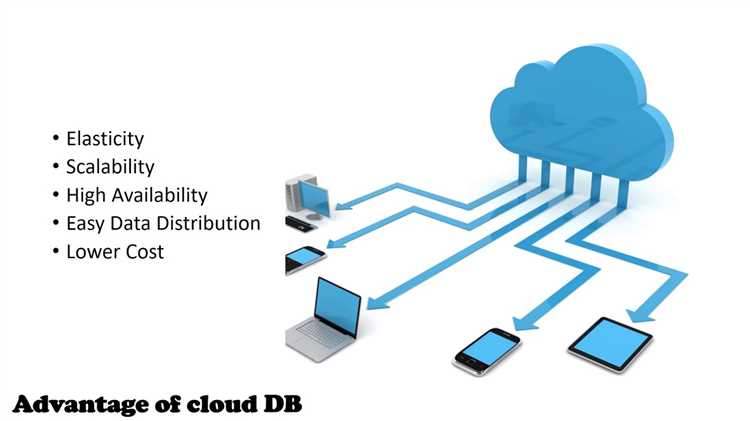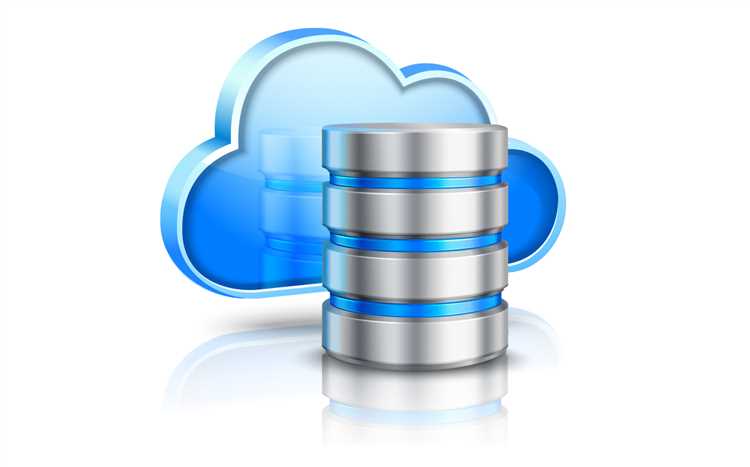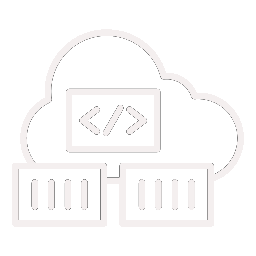Elevate Your Data Management with a Powerful Cloud Database Platform

A cloud database platform serves as a robust and efficient internet-based infrastructure that offers reliable hosting and high-performance capabilities for managing large datasets. It operates within a shared, public online environment, enabling businesses to outsource their data storage and management needs.
By leveraging the scalability and adaptability of web-hosted cloud-based systems, businesses can seamlessly implement multi-cloud storage and management solutions. This empowers them to optimize their data architecture and infrastructure, facilitating smooth data migration, integration, and synchronization processes.
Cloud-backed solutions provide enhanced security and constant availability, ensuring uninterrupted access to data and reliable protection. This results in robust disaster recovery capabilities and the ability to retrieve data as required. The virtual architecture and infrastructure of cloud databases enable businesses to efficiently manage and optimize their data, leading to improved overall performance and efficiency.
Features like replication-based availability and distributed integration empower businesses to achieve unparalleled scalability and performance. Additionally, the flexibility of cloud databases allows organizations to implement hybrid solutions by combining private and multi-tenant architectures to meet their specific requirements.
Embracing cloud database technology presents businesses with the opportunity to fully leverage their data. With on-demand data access, remote management capabilities, and flexible virtual solutions, organizations can effectively utilize their data to drive growth and make informed decisions.
Experience the capabilities of a cloud database platform and elevate your data management to new heights.
Benefits of Cloud Database
- Scalability: Cloud-based databases can easily scale as data volume expands, accommodating increased workloads without manual intervention.
- Flexibility: Cloud databases offer deployment models, including public, private, or hybrid, allowing customization to meet specific needs.
- Security: Robust security features, such as data encryption, user authentication, and access controls, ensure data privacy and safety.
- Availability: Cloud databases provide fault tolerance and replication capabilities, ensuring uninterrupted access to data even in the event of server failures.
- Performance Optimization: Cloud databases optimize performance through caching, query optimization, and multi-tenant architecture, enabling fast data retrieval and analysis.
- Cost-Effectiveness: Pay-as-you-go pricing eliminates upfront hardware and infrastructure costs, providing a cost-effective solution for businesses.
- Migration: Cloud databases offer seamless migration processes, minimizing downtime and ensuring a smooth transition from on-premises to the cloud.
- Integration: Easy integration with cloud-based platforms and services allows businesses to leverage analytics, AI, machine learning, and IoT technologies for valuable data insights.
- Storage Optimization: Elastic storage allows businesses to scale capacity as needed, optimizing storage resource utilization without overprovisioning.
- Data-Driven Decision Making: Real-time data access empowers organizations to make informed decisions quickly, leveraging advanced analytics for competitive advantage.
Embrace the power of cloud databases to access, manage, and leverage your data effectively.
Enhanced Scalability
Remote Database Solutions for Scalability and Performance
Searching for an easily scalable and high-performing database solution? Our remote database structure provides a public cloud-centric platform that enables you to effortlessly increase or decrease your resources based on your requirements. By utilizing our decentralized database service, you can achieve flawless integration with your current online infrastructure and enjoy worry-free scalability.
Increased Availability and Security with Multi-Cloud Integration
Our cloud-based database solution offers integration with multiple cloud providers, allowing you to select the most suitable one for your requirements. This guarantees the highest level of availability and the ability to optimize disaster recovery strategies. Our architecture is both private and secure, ensuring that your data is stored in a shared but isolated environment, offering complete privacy and data protection.
On-Demand Scalable Storage Management
Our customizable storage management solution enables you to effectively organize your storage assets according to your unique needs. Through our web-based infrastructure, you have the ability to conveniently allocate and enhance storage capacity as needed. This not only enhances efficiency but also diminishes expenses by eliminating the necessity for third-party storage providers.
Cloud-Based Backup and Recovery
Prevent data loss from becoming a terrifying experience. Our cloud-powered backup and restoration solution guarantees the secure backup of your data at an external location, offering an additional level of security. Through our multi-tenant system, your data is duplicated across numerous servers, ensuring constant accessibility and decreasing the chances of data loss. If any unexpected events occur, our dependable recovery methods assure a quick and effective data restoration process.
Scalability and Performance Optimization with Cloud Database Services
Get a taste of the immense potential of scalability and performance with our all-inclusive database solution. Our cutting-edge platform provides a shared infrastructure that can effortlessly adapt to your expanding business requirements. Benefit from our state-of-the-art security measures, seamless integration of big data, and optimization features that guarantee dependable and efficient cloud-based data management.
Efficient Data Synchronization and Integration through the Internet

Our cloud database service offers seamless synchronization and integration of data across multiple devices and locations using the internet. This facilitates real-time data updates, ensuring consistency and accuracy. Whether you’re working remotely or collaborating with a distributed team, our cloud-based platform provides the necessary tools for efficient data synchronization and collaboration.
| Scalability | Easily adjust your resources based on your needs |
| Performance | Maximize your database’s performance |
| Availability | Ensure constant accessibility to your data |
| Security | Implement robust security measures to protect your data |
| Multi-Cloud Integration | Select the cloud provider that best suits your requirements |
| Backup and Recovery | Efficiently back up and restore your data in the event of unexpected incidents |
| Data Synchronization | Synchronize your data in real-time across multiple devices and locations |
| Performance Optimization | Optimize your database’s performance for maximum efficiency and cost-effectiveness |
Cost-effective

Enhancing Performance
By leveraging our affordable cloud-based database service, you can improve the efficiency of your business operations. Our solution offers an optimized performance that enables seamless functioning. With an infrastructure that is adaptable and scalable, you can effortlessly adjust to evolving data management requirements.
Off-Site Data Backup
When you choose our affordable cloud database, you can experience the advantages of having your data backed up off-site. This remote service offers improved security and privacy for your valuable data. If there is ever a disaster or loss of data, you can effortlessly retrieve your information.
Multi-Cloud Integration
Our affordable cloud database provides integration with multiple cloud providers, enabling smooth synchronization between various cloud platforms. This guarantees the availability and scalability of your data, offering a dependable and adaptable solution for your business requirements.
Managed Services
By utilizing our cost-effective cloud database, you can take advantage of managed services. Our experienced team handles all the maintenance and optimization tasks, freeing up your time and resources so you can concentrate on your core business operations. This not only saves you money, but also enhances efficiency.
Flexible Computing
Our affordable cloud database solution offers a versatile computing service that allows you to easily adjust the size of your resources to meet your needs. It provides a distributed platform that can accommodate the growth of your business while ensuring efficient use of resources.
To summarize, our cost-effective cloud database solution provides performance optimization, a flexible and scalable infrastructure, off-site data backup, integration with multiple cloud platforms, outsourced management, and versatile computing services. With our reliable and secure platform, you can streamline your data management, increase productivity, and reduce expenses.
High availability
Cloud database solution that is adaptable and scalable
We provide a cloud-based database that offers flexible computing resources, allowing for customization to suit your specific requirements. Our solution ensures high availability and employs a distributed database architecture, guaranteeing data backups and replication for optimal performance and swift recovery.
Outsourced database management
By utilizing our cloud-based solution, you can depend on our provided services for managing your database to guarantee the accessibility and confidentiality of your information. Our secure and integrated data environment ensures the safety and connection of your data, while also offering a flexible and virtual storage solution that can be accessed whenever needed.
Hybrid and multi-cloud integration
Our advanced database management system ensures high availability by combining the power of private and public cloud platforms. With our hybrid and multi-cloud approach, you can enjoy the advantages of both while seamlessly synchronizing and replicating your data. This guarantees the security and accessibility of your information online, all while benefiting from the scalable and high-performing nature of our cloud-based solution.
Web-based database optimization
Our database management solution, designed specifically for web-based applications, is highly available and optimized. By implementing off-site backup and optimization, you can guarantee the availability and performance of your data, all while maintaining its security and protection against any potential disasters or downtime.
Secure and reliable data availability
At the heart of our cloud-based database solution lies a secure and dependable environment for safeguarding your valuable data. By prioritizing privacy and scalability, our cutting-edge architecture guarantees uninterrupted access to your data, with regular backups to ensure its availability whenever you require it. Bid farewell to data loss and system downtime with our reliable and streamlined database management system.
Disaster recovery
Secure and Reliable Cloud-based Disaster Recovery Solution
In today’s rapidly evolving world, businesses rely heavily on their data to sustain operations and provide services. The loss of data or system malfunctions can have devastating consequences. That’s why it’s absolutely crucial to have a comprehensive disaster recovery plan in place. Our disaster recovery service, powered by the cloud, provides the perfect solution for safeguarding your critical data and ensuring uninterrupted business operations.
Scalability and Flexibility: We’ve designed our disaster recovery solution to be built on an extremely adaptable and scalable cloud infrastructure. This allows you to effortlessly adjust resources to match your business’s changing requirements, guaranteeing data protection no matter the size of your operations.
Multi-cloud data replication: Our platform facilitates multi-cloud data replication, allowing you to duplicate your data across various cloud service providers to enhance redundancy and safeguard against potential disruptions. This functionality guarantees continuous data availability, even in the event of a service outage from one cloud provider.
Emphasis on security and privacy: We prioritize the security and privacy of your data above all else. Our cloud-powered disaster recovery solution utilizes cutting-edge encryption and access control mechanisms to ensure constant protection for your valuable data. Moreover, our solution adheres to industry regulations, providing you with the necessary peace of mind.
Real-time synchronization of data: Our disaster recovery solution ensures that any changes made to your data are instantly copied to the cloud. This guarantees that you can restore your data to the most recent point in time, minimizing the potential loss of data in the event of a disaster.
Hosting and management at an external location: Our cloud-based solution securely stores and manages your data at an off-site facility. This decreases the risk of data loss resulting from on-site disasters like fires or floods. Our team of specialists will handle all aspects of data replication, monitoring, and management, enabling you to concentrate on your core business activities.
Take control of safeguarding your data’s future. Make an investment in a dependable and flexible cloud-based solution for disaster recovery, guaranteeing your business’s ability to swiftly bounce back from unexpected situations. Reach out to us now to discover more about the ways our disaster recovery service can empower your business.
Flexibility
Scalable and customizable
Versatility is the central feature of our web-hosted database service. Utilizing our expandable and flexible framework, you have the ability to effortlessly adapt your database size to align with your evolving demands. Whether you encounter an unexpected influx of information or require a reduction in capacity, our cloud-native solution is tailored to seamlessly meet your needs.
Multi-cloud synchronization
With our versatile and internet-based database system, you can effortlessly synchronize your data across multiple cloud services, ensuring that it is continuously updated and easily accessible, regardless of the cloud provider you opt for.
Off-site and on-demand architecture
By utilizing our off-site and on-demand infrastructure, you can center your attention on your primary business operations as we take care of the hosting and infrastructure of your database. Our cloud-based and elastic solution guarantees the secure storage of your data in a shared environment, freeing you from the responsibility of maintaining and managing your own hardware.
Privacy and security
Your privacy and security are our primary concerns. We prioritize the protection of your data through our cutting-edge encryption and security protocols on our online platform. Rest assured that your data is secure through our confidential and externally managed hosting service, which safeguards your information from any unauthorized access, breaches, or potential security risks.
Internet-based backup
We offer a versatile internet-based backup system for your database, which is hosted on the cloud. This innovative solution guarantees the security and accessibility of your crucial data. In case of a catastrophe or data loss, you can effortlessly recover your information from our protected backups, reducing the amount of time your business may be offline and guaranteeing smooth operations.
Integration and scalability
Our large data adaptable database option effortlessly combines with your current systems and applications. Whether you are utilizing virtualized machines, shared infrastructure, or a combination of on-premises and cloud resources, our cloud-native option can easily adjust and expand to match your requirements. Bid farewell to compatibility problems and relish a streamlined and problem-free integration procedure.
Security
Protect Your Data with Our Cloud-Based Security Infrastructure
Our cutting-edge security platform, powered by cloud technology, offers unparalleled data protection and privacy solutions. Rest assured, your data is in good hands.
State-of-the-art Data Encryption: Our cloud-based platform employs top-of-the-line encryption measures to safeguard your data both during storage and transit. We leave no room for unauthorized access.
Flexible Off-Site Backup and Recovery: With our cloud-based solution, you have the freedom to choose flexible off-site backup and data recovery options. Your data will always be accessible and resilient, even in the face of unforeseen disasters or data loss.
Integrating multiple clouds: Our cloud platform has the capability to integrate with multiple cloud providers, enabling you to easily manage and duplicate your data across various cloud services for enhanced redundancy and accessibility.
Protective multi-tenant structure: Our cloud infrastructure employs a secure multi-tenant architecture to ensure complete isolation and safeguarding of your data against any possible threats or breaches originating from other users.
Ongoing surveillance and enhancement: Our cloud security service offers constant monitoring and improvement, rapidly identifying and addressing any potential security risks or vulnerabilities in real time.
Cloud-based management platform: Our security platform in the cloud provides a user-friendly management platform accessible through the web. You can easily configure and manage security settings, access audit logs, and monitor security events.
Remote accessibility and availability: Utilizing our cloud-powered security infrastructure, you can securely access and manage your data from anywhere, at any time, using any device connected to the internet.
Opt for our cloud-based security solution to safeguard your data in a reliable, scalable, and secure manner while ensuring the confidentiality of your sensitive information.
Easy management
Are you searching for a simple way to effectively oversee your database? Our cloud-based solution presents an assortment of features specially crafted to streamline database management.
By utilizing our cloud-supported infrastructure, you can relish the advantages of availability and scalability. Our adaptive and flexible virtual hosting guarantees that your database can effortlessly accommodate any volume of data, providing you with the convenience to easily scale up or down as per your requirement.
Leave behind the hassle of on-site infrastructure and upkeep. Our cloud-based platform enables you to delegate your computing necessities, resulting in reduced costs and granting your IT team more freedom to concentrate on other assignments.
Our unique multi-tenant architecture guarantees the utmost privacy and security while our seamless integration capabilities enable effortless connectivity with other systems. Through our user-friendly web-based management interface, you have the convenience of accessing and managing your database from anywhere, granting you the flexibility to make necessary changes.
Ensuring data security and redundancy, backup and replication play a pivotal role. Our intuitive backup and replication features empower you to effortlessly store and access your data whenever you need it. Furthermore, our cutting-edge hybrid and multi-cloud capabilities optimize storage and flexibility, ensuring your data is always within reach and backed up both on-site and off-site.
Why let database management become a headache? Opt for our cloud-driven solution and experience the simplicity and convenience of effortless management.
Improved performance
Experience enhanced performance for your data management needs with our cloud-based database solution. Our versatile and multi-tenant platform guarantees secure storage and access to your data from any location. Seamlessly integrate and manage your data, with effortless backup, replication, and scalability.
Our cloud-powered system offers high availability and platform scalability, freeing you to focus on your core business, unconstrained by infrastructure limitations. Benefit from off-site backup and data recovery services, courtesy of our replication and hosted infrastructure, for enhanced security and peace of mind.
With the utilization of our web-based and remote synchronization capabilities, you can conveniently access and oversee your information from any device, enhancing the flexibility and effectiveness of your workflow. Our selection of multi-cloud storage and computing options allows for distributed hosting, ensuring optimal performance and resource utilization.
Regardless of whether you opt for a public, hybrid, or hosted solution, our cloud database service is specifically designed to optimize performance based on your unique requirements. Bid farewell to sluggish and ineffective data management and embrace the advantages of our enhanced performance solution today!
